Experience the highlights of Gyeongju in just one day
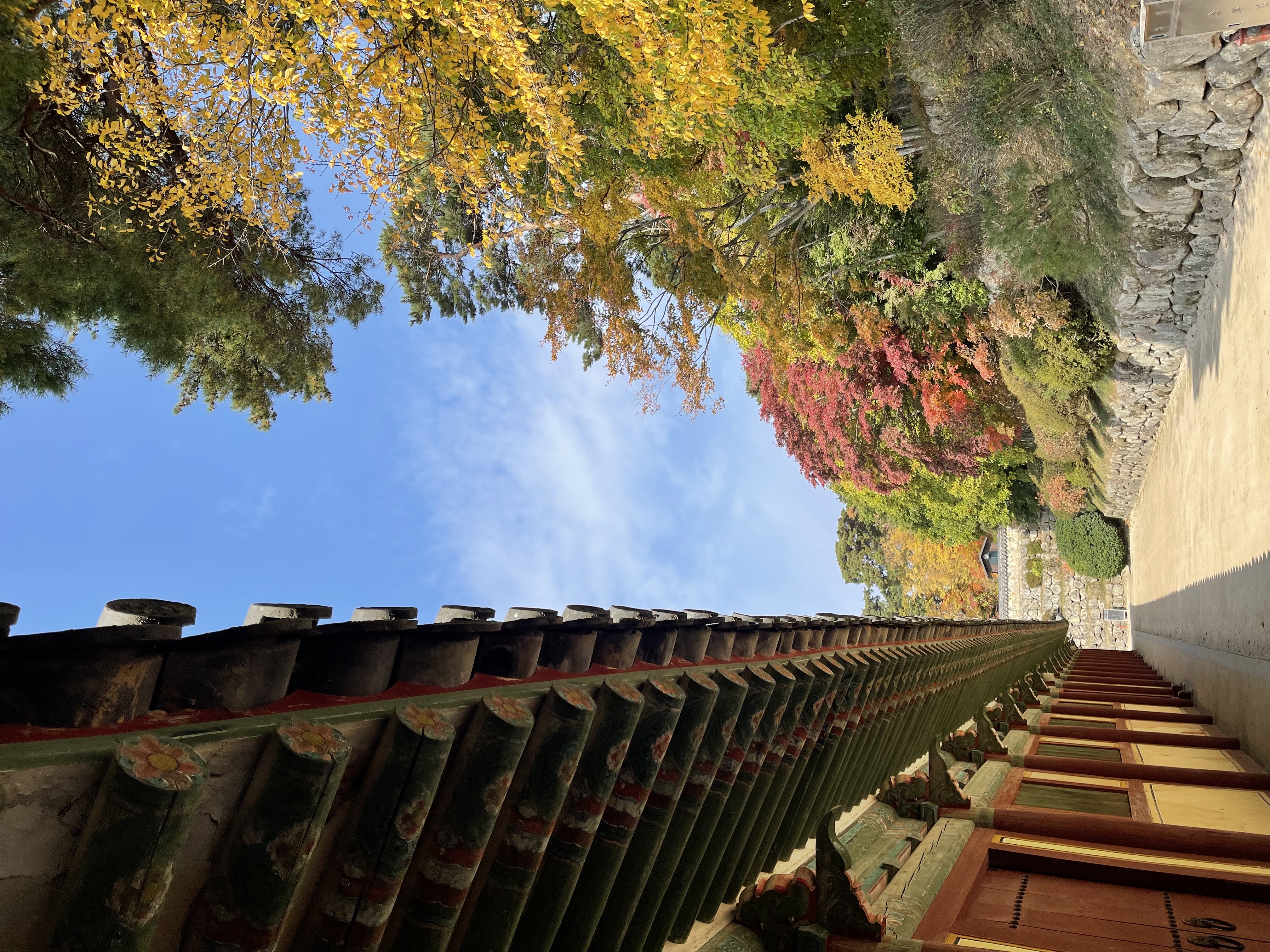
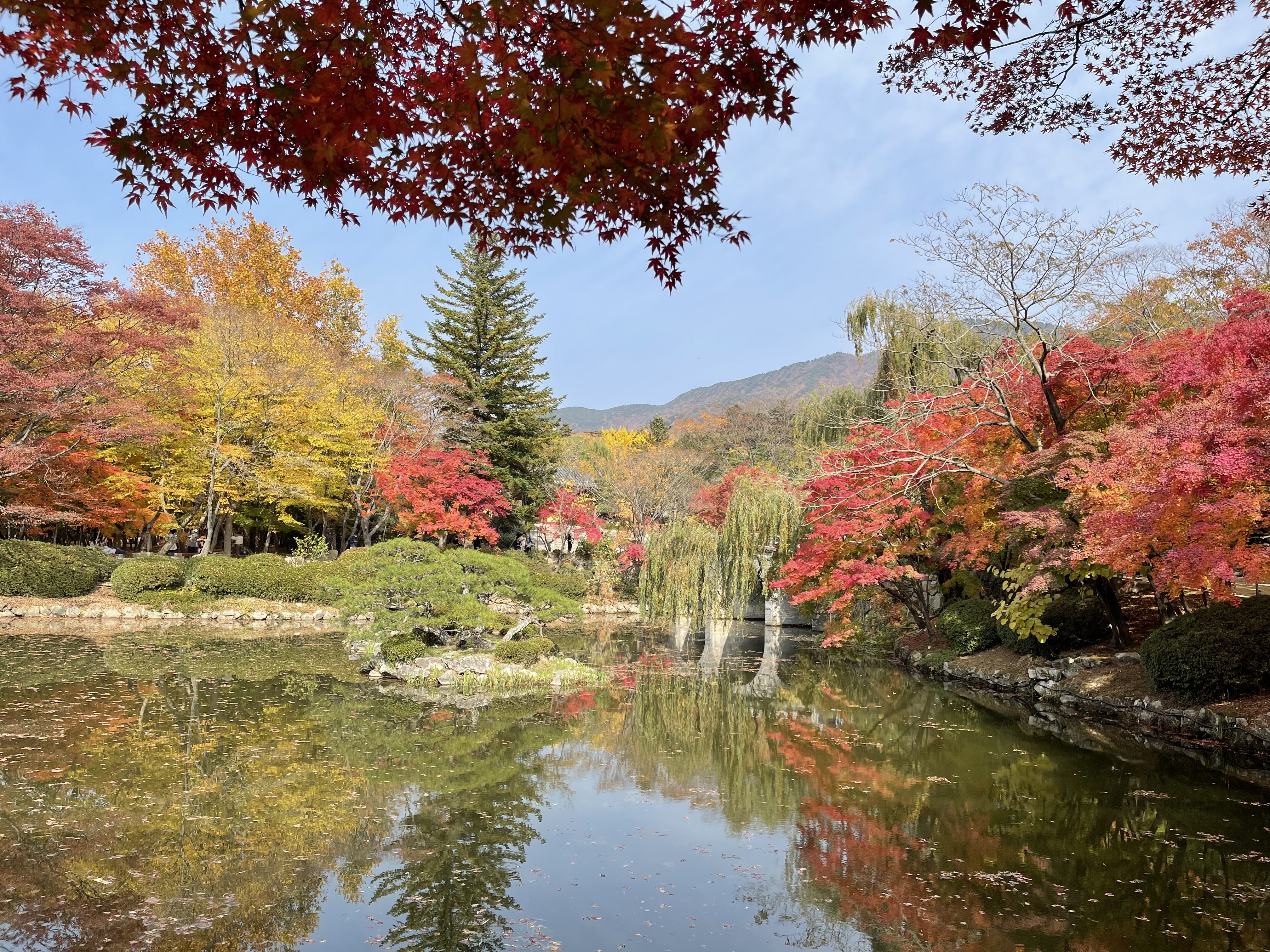
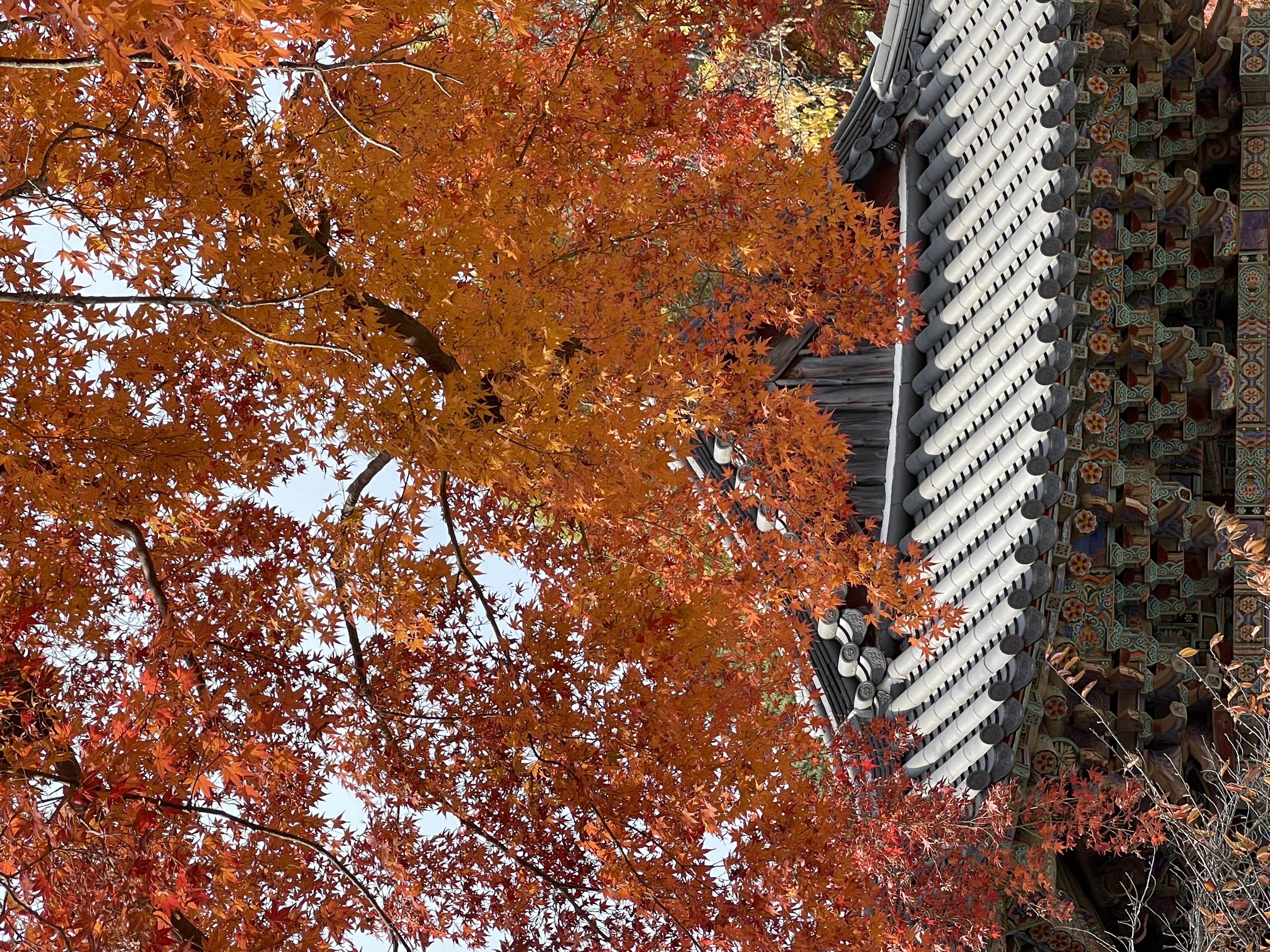
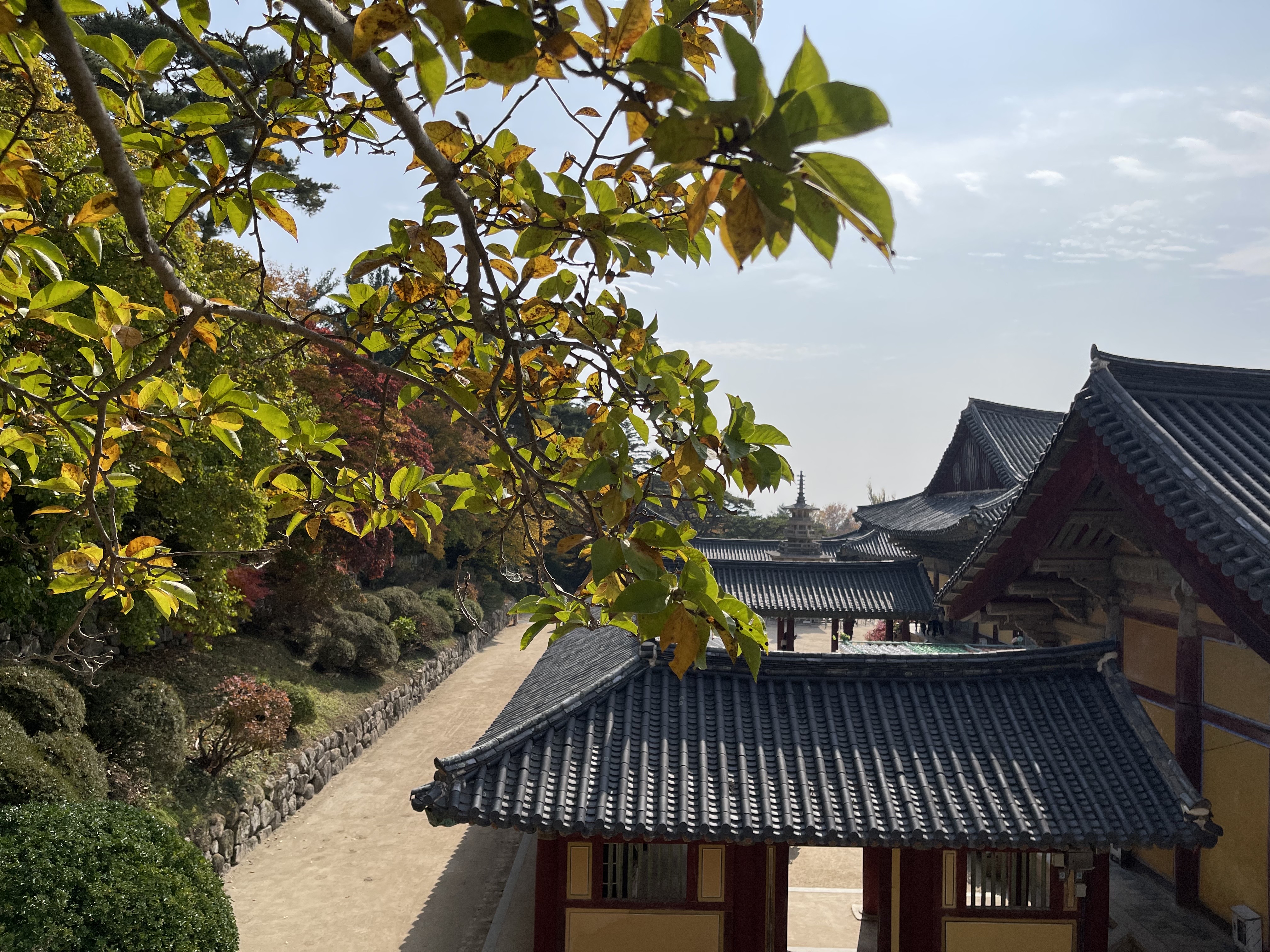
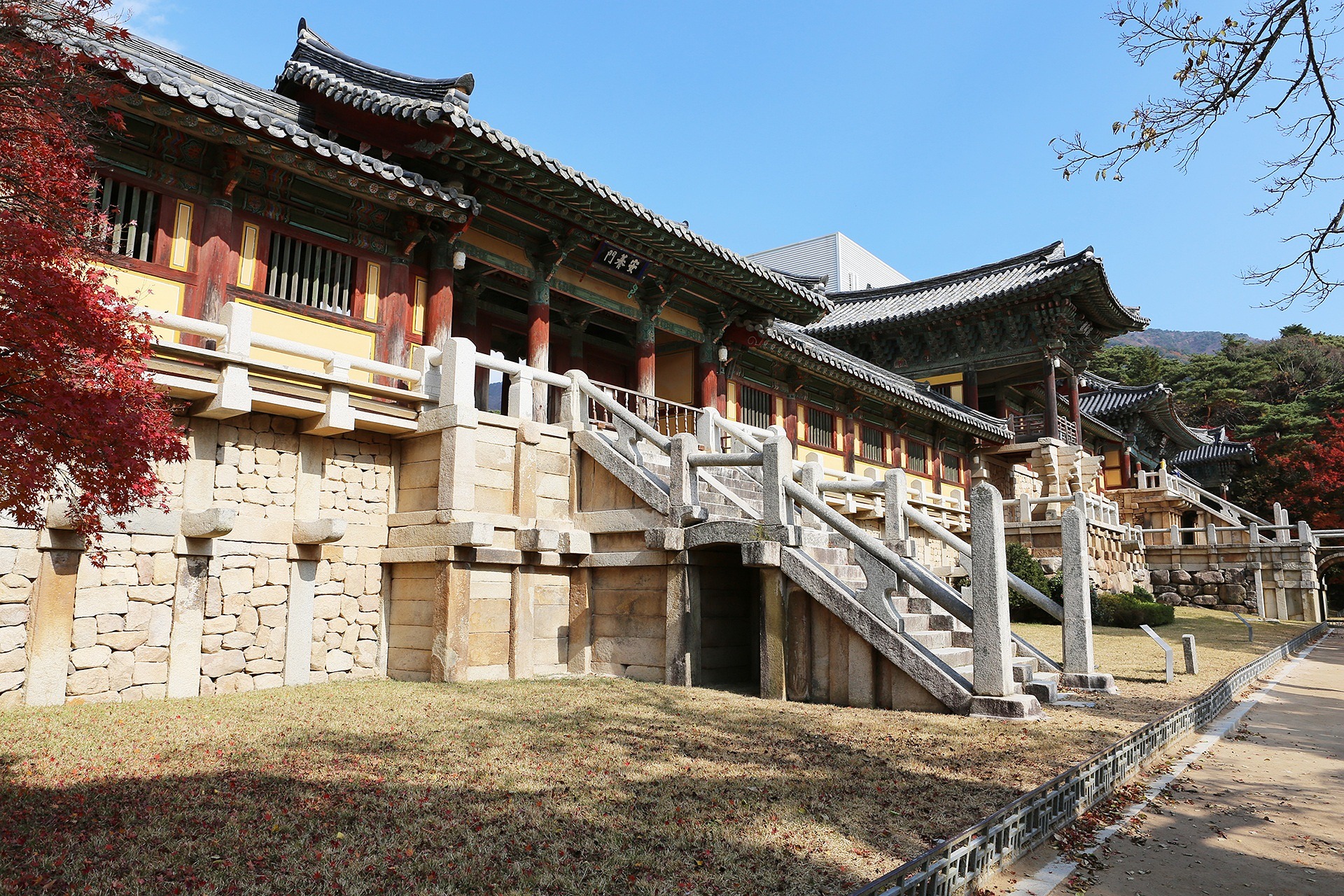
1. Bulguksa temple (Duration 1hour)
Bulguksa Temple, nestled amidst the serene landscapes of Gyeongju, South Korea, stands as a timeless symbol of Korean Buddhist art and culture. Built in the 8th century during the prosperous Silla Dynasty, this UNESCO World Heritage site is renowned for its architectural splendor, exquisite craftsmanship, and spiritual significance.
Bulguksa Temple is not only a place of worship but also a sanctuary for contemplation and reflection. Surrounded by lush greenery and tranquil gardens, it offers a peaceful retreat from the hustle and bustle of modern life, inviting visitors to reconnect with nature and nurture their spiritual well-being.
Throughout its long history, Bulguksa Temple has served as a center of Buddhist learning and practice, attracting pilgrims and devotees from far and wide. Today, it continues to inspire awe and reverence, drawing visitors of all backgrounds to experience its timeless beauty and profound teachings.
A visit to Bulguksa Temple is a journey into the heart and soul of Korean Buddhism, where ancient traditions and modern aspirations converge in a place of profound peace and enlightenment. It is a testament to the enduring legacy of Gyeongju's cultural heritage and a reminder of the transcendent power of faith and spirituality.
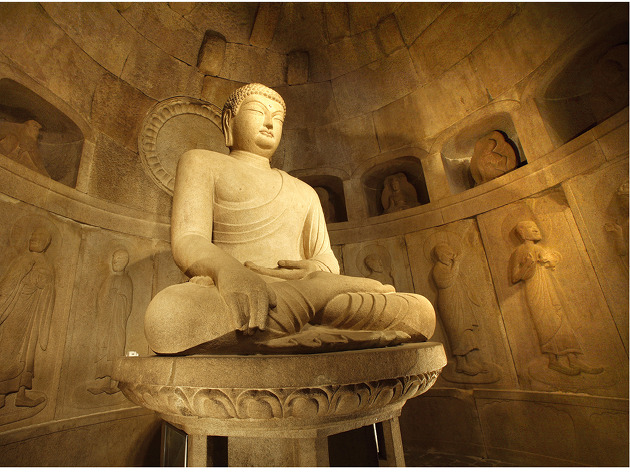
2. Seokguram grotto (Duration 40mins)
Seokguram Grotto, located in the historic city of Gyeongju, South Korea, is a remarkable testament to ancient Korean Buddhist art and spirituality. Carved into the granite hillside of Mount Toham during the 8th century, this UNESCO World Heritage site is renowned for its exquisite stone sculptures and architectural marvels.
The grotto houses a stunning statue of Buddha, meticulously crafted from granite, which radiates a sense of tranquility and enlightenment. Surrounding the central figure are intricate relief carvings depicting scenes from Buddhist scriptures and teachings, showcasing the unparalleled skill and artistry of the Silla Dynasty craftsmen.
Seokguram Grotto is not only a masterpiece of religious art but also a place of profound spiritual significance. Pilgrims and visitors alike are drawn to its serene atmosphere and awe-inspiring beauty, seeking solace, enlightenment, and a deeper connection to the divine.
A visit to Seokguram Grotto offers a journey through time and space, allowing visitors to immerse themselves in the rich history and cultural heritage of Korea's ancient Buddhist tradition. Whether admiring the intricate details of the sculptures, meditating in the tranquil surroundings, or simply marveling at the grotto's architectural splendor, it is an experience that resonates with the soul and leaves a lasting impression of Gyeongju's profound spiritual legacy.
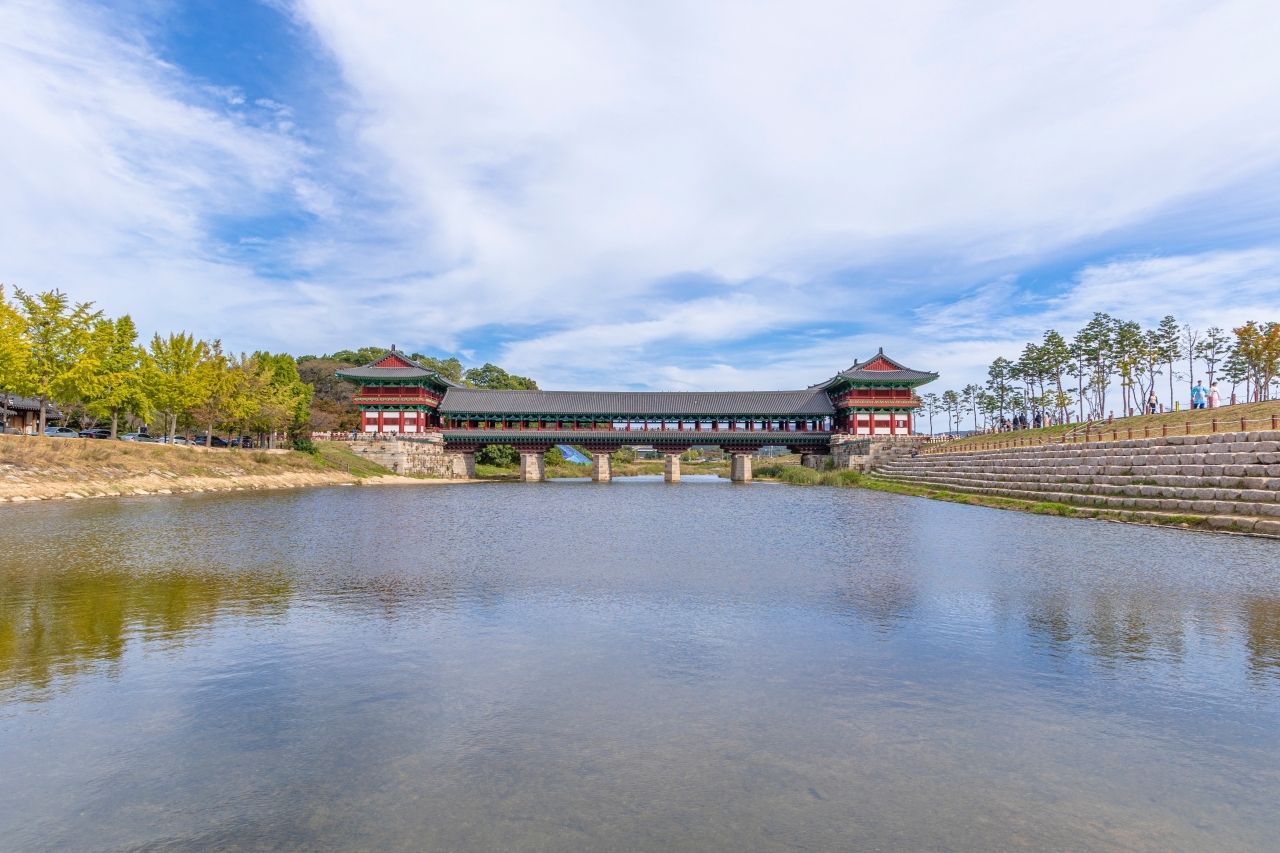
3. Woljeong gyo bridge (Duration 20mins)
Woljeong Bridge in Gyeongju, South Korea, is a beautiful landmark embodying the region's tranquility. Built during the Silla Dynasty, it showcases traditional Korean architecture. The bridge offers leisure and relaxation by the scenic Woljeonggyo Stream, providing a serene escape from urban life. As a cultural icon, it bridges past and present, captivating visitors with its timeless charm and natural beauty. Visiting Woljeong Bridge allows one to immerse in Korean heritage, connect with nature, and enjoy simple pleasures.
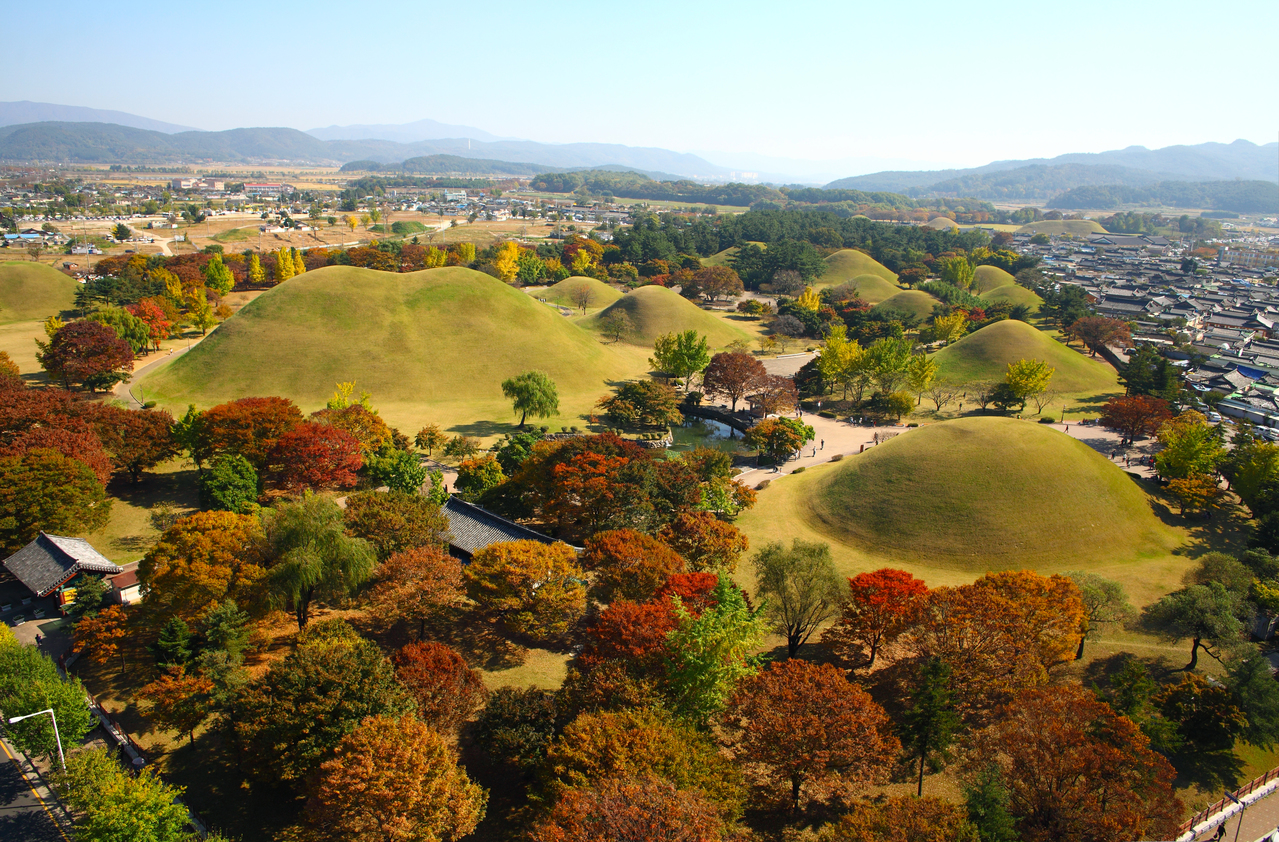
4. Daereungwon tomb park (Duration 50mins)
Daereungwon Tomb Park, situated in the heart of Gyeongju city, South Korea, is a significant archaeological site that offers a glimpse into the ancient Silla Kingdom's royal burial customs and traditions.
The park is home to a collection of large, grass-covered burial mounds known as tumuli, which are believed to house the remains of Silla royalty and nobility. Among the most notable tumuli is the Cheonmachong Tomb, named after the flying horse motif found on one of its artifacts. This tomb has been meticulously excavated and restored, providing visitors with a rare opportunity to explore the interior chambers and artifacts of an ancient royal burial site.
As visitors wander through Daereungwon Tomb Park, they can marvel at the scale and craftsmanship of these ancient burial mounds, which stand as enduring monuments to the power and prestige of the Silla Dynasty. Surrounding the tumuli are landscaped gardens and pathways, creating a peaceful and contemplative atmosphere for visitors to enjoy.
With its rich historical significance and serene natural beauty, Daereungwon Tomb Park offers visitors a unique opportunity to step back in time and experience the wonders of Korea's ancient past. Whether exploring the burial mounds, learning about Silla culture at the onsite museum, or simply enjoying a leisurely stroll through the park's tranquil grounds, a visit to Daereungwon Tomb Park is sure to be an enriching and memorable experience.
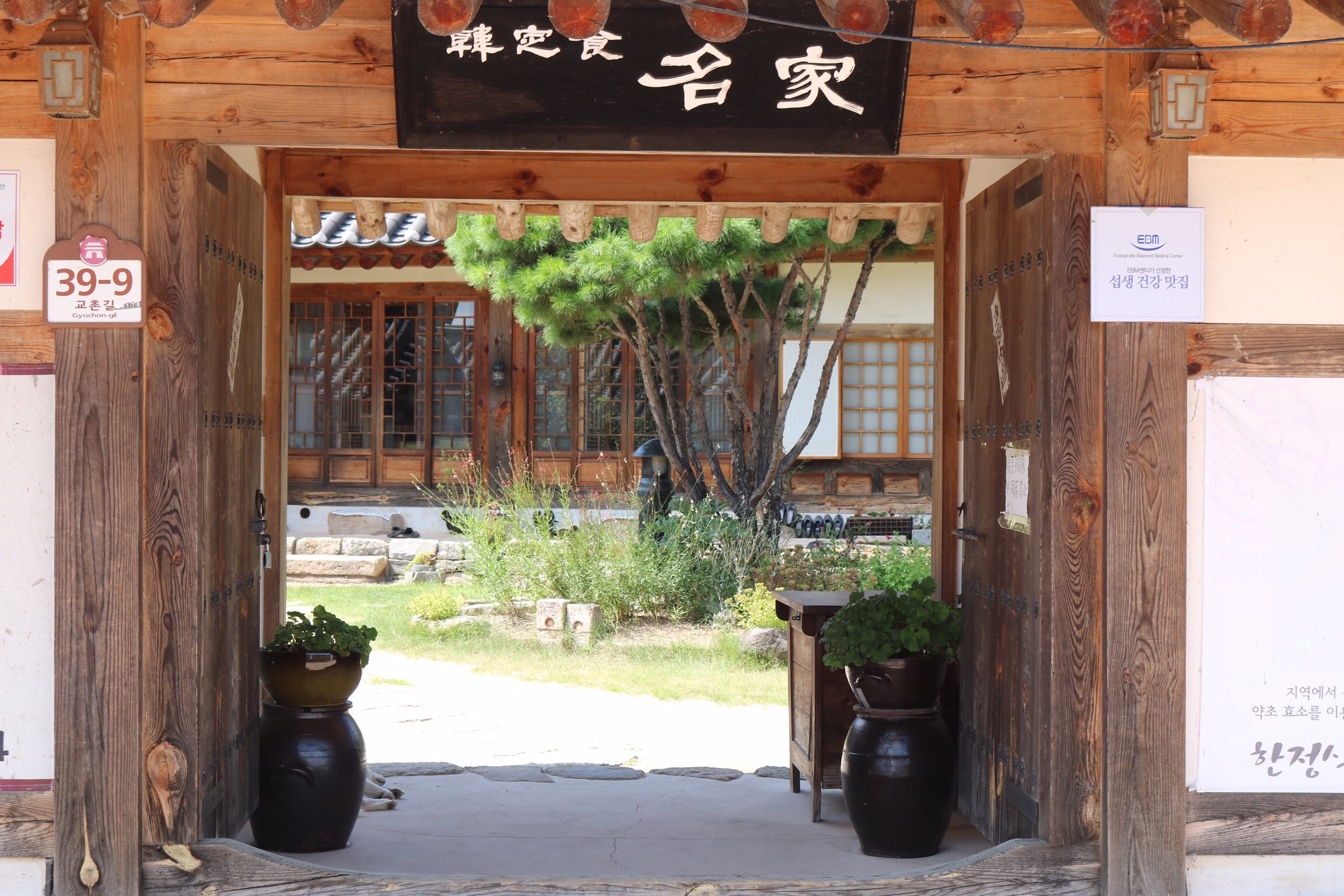
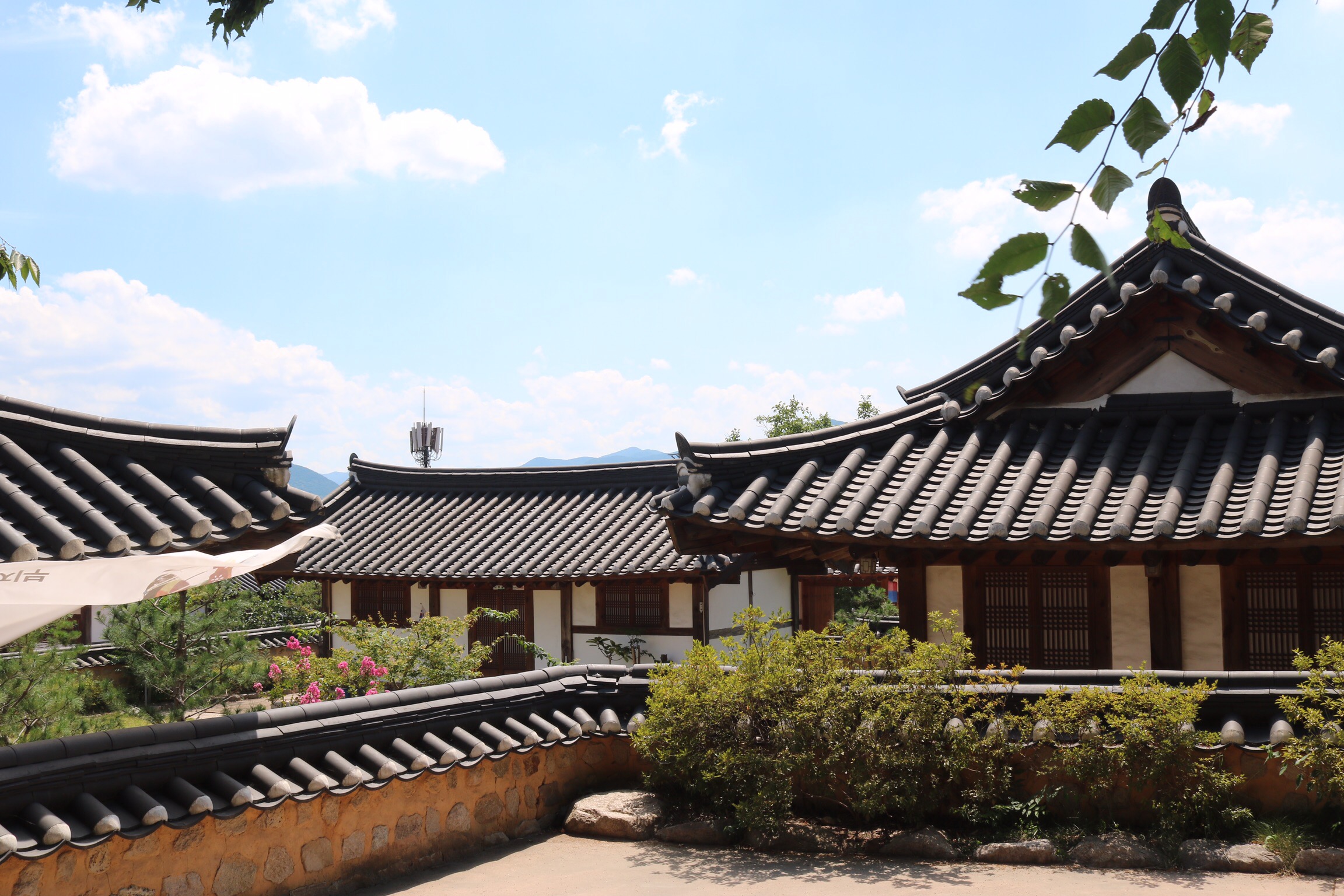
5. Gyochon Hanok village (Duration 40mins)
Gyochon Village, nestled in the heart of Gyeongju city, South Korea, is a charming historic district that offers visitors a glimpse into traditional Korean village life. This well-preserved neighborhood is renowned for its picturesque hanok (traditional Korean houses), cobblestone streets, and tranquil ambiance.
As visitors wander through Gyochon Village, they can explore a variety of cultural attractions, including historic residences, traditional workshops, and artisan shops. Many of these houses have been lovingly restored to their original splendor, allowing visitors to experience firsthand the architectural elegance and craftsmanship of traditional Korean homes.
In addition to its cultural attractions, Gyochon Village is also home to several quaint cafes, teahouses, and restaurants serving authentic Korean cuisine. Visitors can relax and enjoy a traditional Korean meal or sample local delicacies while taking in the scenic beauty of the village.
With its timeless charm and rich cultural heritage, Gyochon Village offers visitors a delightful escape from the hustle and bustle of modern life. Whether exploring its historic streets, learning about traditional crafts, or simply enjoying a leisurely stroll through its tranquil surroundings, a visit to Gyochon Village is sure to be a memorable experience.
6. Gyeongju Hwanglidan road
Gyeongju Hwangnidan Street, also known as Hwangridan-gil, is a charming and historically significant area located in Gyeongju, South Korea. It's renowned for its traditional Korean architecture, quaint shops, and vibrant atmosphere. Here's a brief overview:
Historical Significance: Hwangnidan Street is situated in the heart of Gyeongju, a city known as the "museum without walls" due to its rich history and numerous ancient sites. The street itself is named after Hwangnidan, a key location in Korean history associated with the legend of Kim Yusin's birth during the Silla Dynasty.
Traditional Architecture: The street is lined with beautifully preserved traditional Korean houses, known as hanok. These structures feature characteristic tiled roofs, wooden beams, and traditional courtyard layouts, offering visitors a glimpse into Korea's architectural heritage.
Cultural Attractions: Along Hwangnidan Street, visitors can explore various cultural attractions, including art galleries, museums, and artisan workshops. These venues showcase traditional Korean crafts such as pottery, calligraphy, and silk weaving, providing opportunities for hands-on experiences and cultural immersion.
Shopping and Dining: Hwangnidan Street is home to a diverse array of shops, boutiques, and eateries. Visitors can browse for unique souvenirs, handicrafts, and local specialties, including traditional Korean snacks and delicacies. The street's bustling market stalls and cozy cafes add to its vibrant ambiance.
Events and Festivals: Throughout the year, Hwangnidan Street hosts various cultural events and festivals, celebrating Korean traditions, arts, and cuisine. These festivities often feature traditional performances, music, dance, and culinary demonstrations, providing entertainment for locals and tourists alike.
Inclusion – Private airconditioned car, licensed tour guide, tollgate fee, parking fee, fuel, pick up and drop off
Exclusion – Lunch, entrance fee, ticket for ride, gratuity